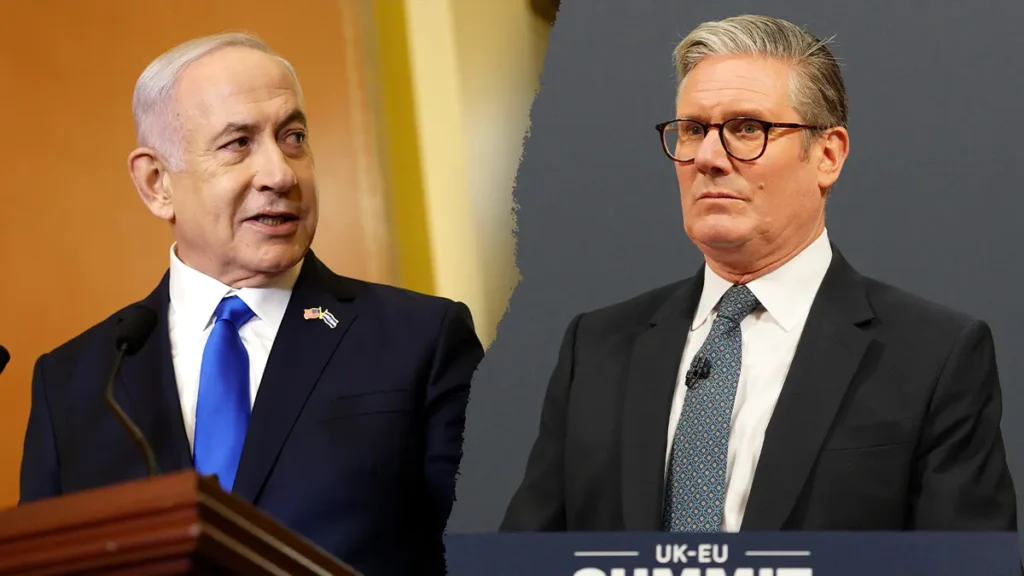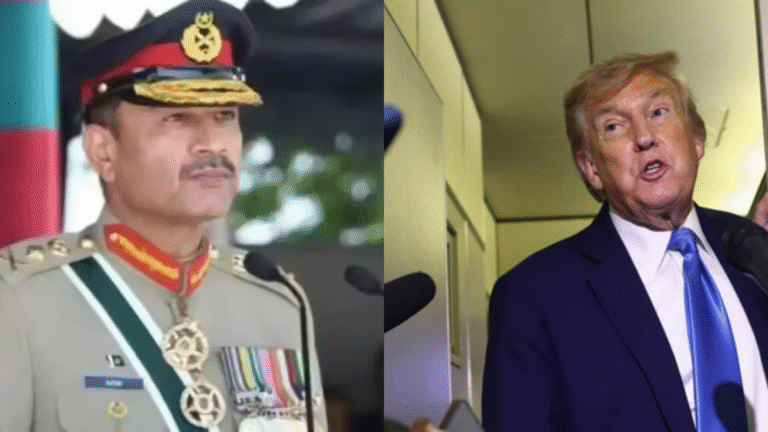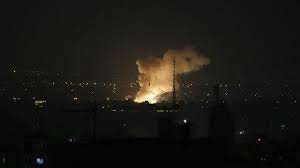
The UK government officially announced a pause in its negotiated free trade agreement (FTA) with Israel, citing hateful and incendiary language from senior Israeli officials and increasing violence in Gaza. This exceptionally noteworthy diplomatic decision represents a shift in UK foreign policy towards a greater willingness to pressure the Israeli government with economic and political sanctions in response to its perceived violation of international humanitarian law. The present analysis describes the history, context, and meaning of the UK suspension, while also offering a critical analysis of the possible rationales, motivations, and consequences of this policy change, if any.
History
In 2022, the UK and Israel started initial negotiations on a free trade agreement, which would build on a continuity agreement signed in 2020 following Brexit. Trade between the UK and Israel exceeded £5bn in 2024, particularly strong with important investment areas including pharmaceuticals, cybersecurity, and defense.
Unfortunately, the negotiations had become politically untenable following Israel’s escalation in military action in Gaza just after October 2023, during a wider conflict that had seen tens of thousands killed in Palestine, and over a million displaced, according to the United Nations Office for the Coordination of Humanitarian Affairs (UNOCHA). The UK was increasingly cognizant of the way violence and humanitarian concerns surrounding the Israeli military were perceived.
In Parliament, UK Foreign Secretary David Lammy spoke of “monstrous” comments made by Israeli officials, such as calling for the expulsion of Palestinians from Gaza, that were inconsistent with values identifying the UK-Israel relationship. The UK’s position appeared to shift further with accusations of Israeli obstruction of humanitarian aid, along with increasing instances of settler violence in the West Bank.
Stakeholders and Perspectives
The UK Government wants to consolidate international law and align foreign policy with humanitarian principles. Prime Minister Keir Starmer’s government has come under pressure from his party, the Labour Party, to adopt a stronger position against Israel.
The Israeli Government, particularly the far-right ministers Bezalel Smotrich and Itamar Ben-Gvir, has reacted defiantly and indicated that their actions are a legitimate part of a counter-terrorism campaign against Hamas. Israeli officials have designated the UK’s response as biased and harmful to diplomatic relationships.
Palestinian Civilians are the most directly affected. The UK may have taken a symbolic step towards support, but critics contend that for any real impact, there needs to be multilateral support and enforcement of international law, with appropriate consequences for failure to uphold it.
Stakeholders in the UK-Israel Trade Sector, that is, companies from Britain and Israel, are left in limbo. The UK’s suspension may delay or halt deals in high tech and defence.
Although Prime Minister Rishi Sunak’s suspension of negotiations on a U.K.-Israel FTA is being promoted as a principled decision regarding international law, it also positions the United Kingdom politically in an important way. The Labour government must respond to domestic public opinion, especially from its progressive base, and the historical relationship between the Labour Party (and the United Kingdom) and Israel. Sunak’s suspension of dialogues with Israel was also imprecisely timed immediately before routine international human rights reviews at the United Nations, implying a degree of political calibration.
Critics have pointed out that delaying talks unilaterally is not meaningful unless it is done with global concurrence. The EU and the U.S., for example, continue to have economic relations with Israel (albeit increasingly careful economic relations with Israel) while Parliament seems to assert they are meaningful when suspended during multilateral decision-making processes without regard to their own country’s alignment with the FVEA. The United Kingdom may not be seen as making meaningful changes at all if what is happening appears unilateral and not multilateral – the suspension may have had little practical effect in the absence of a multilateral effort.
Further, the UK suspended arms export licenses to Israel, yet has not declared it was implementing a global arms embargo or that there were specific economic sanctions measures which would represent some finality.
This cease in arms sales represents a rare rupture in UK-Israel interaction. The history of cooperation and bilateral ties between the UK and Israel has been historically strong. The prior two recent conflicts, for example (the 2014 Gaza War), did not cause a suspension of arms sales or a rupture in sales or defense relations. This is partly due to the change in discourse around human rights on a global level, particularly in the wake of the Ukraine war, where Western states have emphasized global norms.
In turn, the UK’s position now aligns more with Ireland and Norway, which have been more vocally critical of Israel and its actions in Gaza, than with the US, which has faced domestic debates but has not formally suspended any trade deals.
The UK’s decision has far-reaching ramifications:
In terms of diplomacy, it could damage the UK-Israel relationship and impact cooperation in intelligence and defense.
In terms of economy, both countries may face relatively minor disruptions, though the trade will continue in line with existing agreements.
In terms of politics, it may be viewed positively by supporters of the Labour government among those advocating for a human rights-based approach, whilst potentially being viewed negatively by the pro-Israeli constituencies in the UK and politically by their opponents.
More importantly, the decision may provide broader guidance for how Western democracies may react to allegations of breaches of international law by close allies.
The UK’s decision to suspend free trade negotiations with Israel about the war in Gaza is an important diplomatic move that demonstrates a larger foreign-policy re-evaluation stemming from humanitarian concerns. The suspending of free trade negotiations is historically and politically symbolic, and the significance of that will ultimately depend on subsequent actions and if any other country follows suit. The UK’s suspension highlights the difficult and often contradictory mixture of ethics, politics, and international relations during times of conflict, and potentially marks the beginning of a distancing of Western powers from contentious allies.
Keep reading Questiqa.com




